
Find Help
More Items From Ergsy search
-

Which countries have higher rates of measles?
Relevance: 100%
-
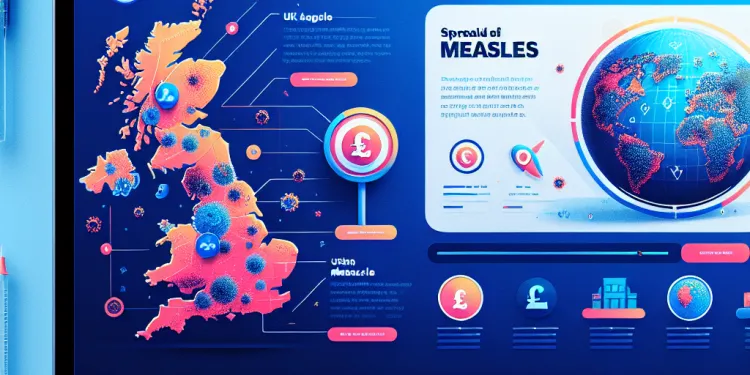
Are measles more common outside of the UK?
Relevance: 54%
-

How does vaccination affect measles rates?
Relevance: 53%
-

Are there any countries at higher risk for Marburg virus outbreaks?
Relevance: 51%
-

Are adults in the UK at risk from measles?
Relevance: 48%
-

Is there a risk of global spread if measles cases rise in the UK?
Relevance: 47%
-

Are measles cases currently rising in the UK?
Relevance: 45%
-
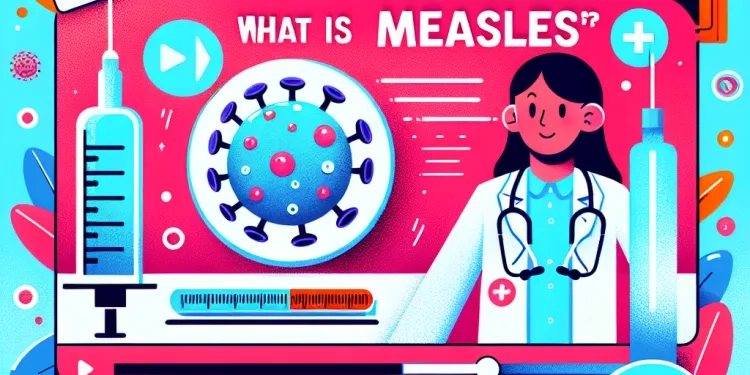
What is measles?
Relevance: 44%
-

Who is most at risk from measles?
Relevance: 44%
-
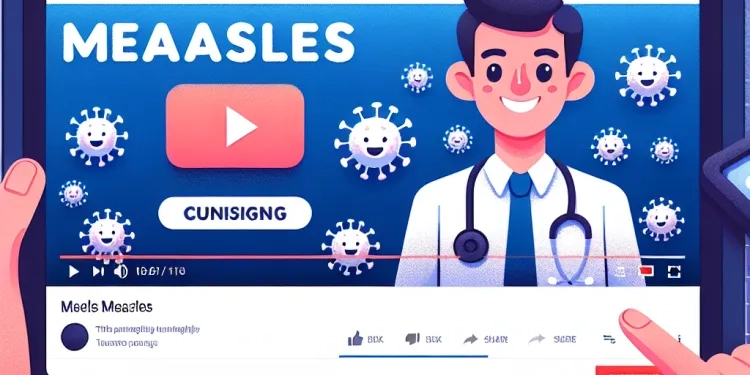
Measles
Relevance: 44%
-

Can measles be serious?
Relevance: 44%
-

Is it necessary to get a measles vaccine before travelling?
Relevance: 44%
-

Why is measles less common in the UK?
Relevance: 44%
-
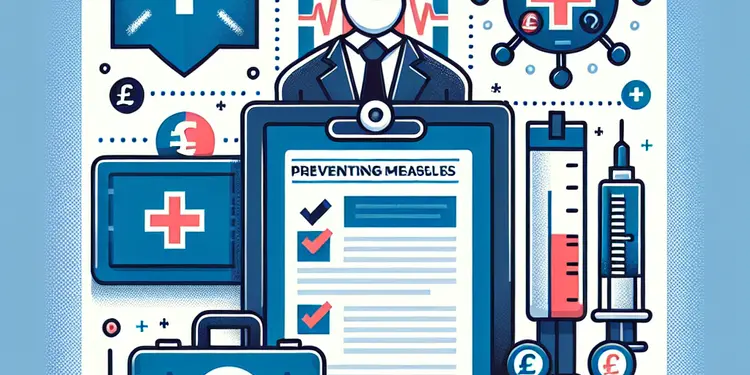
How can measles outbreaks be prevented?
Relevance: 44%
-

Why has the UK lost its measles elimination status?
Relevance: 43%
-

Why are measles outbreaks still occurring?
Relevance: 43%
-

How does the UK monitor measles outbreaks?
Relevance: 42%
-

Are measles cases rising in the UK?
Relevance: 42%
-

Are measles outbreaks common in the UK?
Relevance: 42%
-

How is measles transmitted?
Relevance: 41%
-
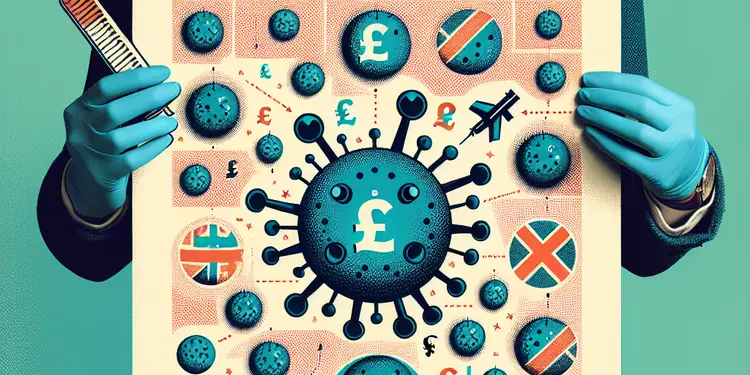
How is measles spread?
Relevance: 41%
-

How contagious is measles?
Relevance: 40%
-

Is there a treatment for measles?
Relevance: 40%
-

Is there a treatment for measles?
Relevance: 40%
-

What is causing the rise in measles cases in the UK?
Relevance: 40%
-
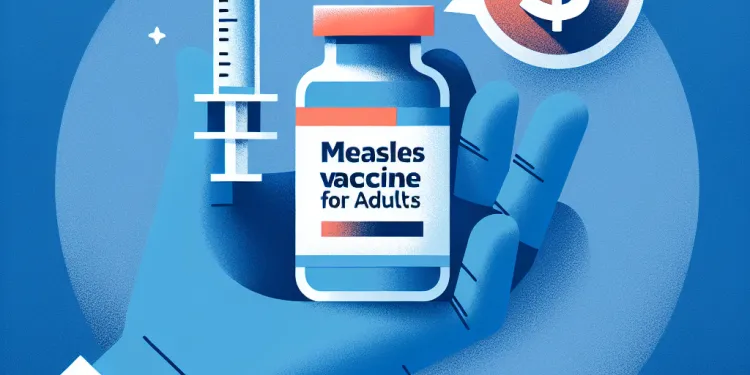
Can the measles vaccine be given to adults?
Relevance: 39%
-

Can measles be treated?
Relevance: 39%
-

Is Rubella the same as measles?
Relevance: 38%
-

How is measles transmitted?
Relevance: 38%
-

Can measles cause complications?
Relevance: 37%
-
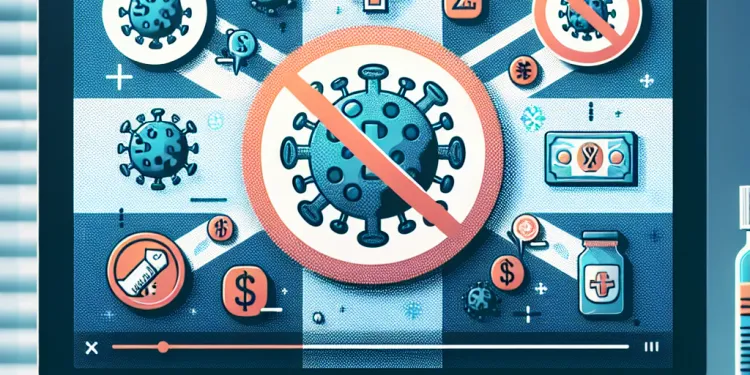
How can measles be prevented?
Relevance: 37%
-

What are the symptoms of measles?
Relevance: 37%
-
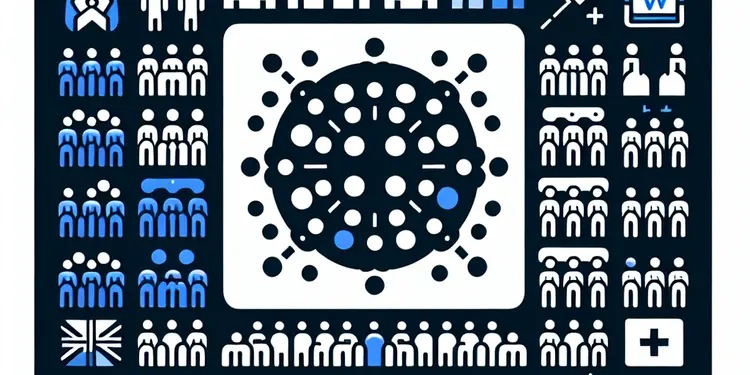
What is herd immunity and how does it relate to measles?
Relevance: 36%
-

What is the current measles vaccination coverage in the UK?
Relevance: 36%
-

What are the symptoms of measles?
Relevance: 36%
-

What are the symptoms of measles?
Relevance: 36%
-
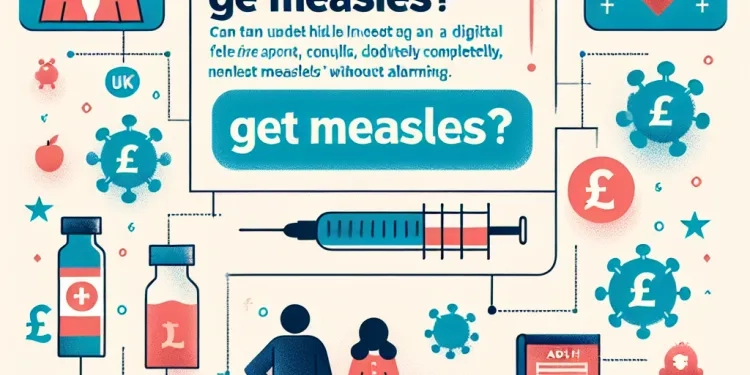
Can adults get measles?
Relevance: 36%
-

Which countries impose inheritance tax?
Relevance: 34%
-

How long is a person with measles contagious?
Relevance: 34%
-

What should I do if I suspect I have measles?
Relevance: 34%
Global Measles Rates: Where Are They Highest?
Introduction to Measles
Measles, a highly contagious viral disease, continues to be a global health concern, particularly in areas with low vaccination coverage. Despite efforts to eradicate the disease, certain regions report higher incidences due to various socio-economic and healthcare-related factors.Countries with High Measles Rates
Sub-Saharan Africa
Sub-Saharan Africa consistently reports high rates of measles. Factors contributing to this include limited access to healthcare, low vaccination rates, and logistical challenges in vaccine distribution. Countries such as Nigeria and the Democratic Republic of the Congo often face outbreaks due to these barriers.South Asia
In South Asia, countries like Pakistan and India experience high measles rates. While India has made progress in increasing vaccination coverage, large population size and periodic outbreaks continue to pose challenges. Pakistan faces similar issues, compounded by political instability affecting public health initiatives.Western Pacific and Southeast Asia
Regions in the Western Pacific, such as the Philippines, and Southeast Asia, including Indonesia, have documented significant measles outbreaks. Contributing factors include vaccine hesitancy, driven by misinformation, and disparities in healthcare access across rural areas.Reasons for High Measles Rates
Several factors contribute to high measles rates in these countries. Insufficient healthcare infrastructure, economic constraints, cultural beliefs, and misinformation can impede vaccination efforts. Additionally, global travel can facilitate the spread of measles, linking unvaccinated populations across borders.The UK's Role in Combating Measles
The UK, with its robust healthcare system, supports global measles eradication efforts through funding and expertise. As a nation committed to improving global health, it plays a pivotal role in supporting vaccine distribution and awareness campaigns in high-risk regions. The UK's experience in managing measles can provide valuable insights and strategies to help reduce worldwide incidence rates. In conclusion, while great strides have been made in reducing measles incidence globally, significant challenges remain. Multi-faceted approaches involving international cooperation, education, and strategic vaccination campaigns are crucial to tackling the persistent threat of measles in high-risk countries.Where Is Measles Most Common in the World?
What Is Measles?
Measles is a fast-spreading disease that comes from a virus. It makes people sick all over the world. It is a big worry in places where people do not get many vaccines. Even though people are trying to stop measles, some places still have a lot of it. This can be because of problems with money, healthcare, or other reasons.Places with a Lot of Measles
Sub-Saharan Africa
Sub-Saharan Africa often has a lot of measles. This happens because it's hard for people to see a doctor, many don't get vaccines, and it's tough to deliver vaccines there. Places like Nigeria and the Democratic Republic of the Congo have a lot of outbreaks because of these problems.South Asia
In South Asia, countries like Pakistan and India have many cases of measles. India has tried hard to give more people vaccines, but there are still problems because so many people live there. Pakistan has trouble too because they have other problems that make it hard to keep people healthy.Western Pacific and Southeast Asia
In the Western Pacific, like the Philippines, and Southeast Asia, like Indonesia, many people get measles. Some people are afraid of vaccines because of wrong information. It is also hard for people living far away from cities to get healthcare.Why Is Measles Common in These Places?
There are several reasons why these places have lots of measles. It can be hard to get healthcare, there might not be enough money, and some beliefs stop people from getting vaccines. Incorrect information also makes people afraid. When people travel to different places, measles can spread fast.The UK's Help in Stopping Measles
The UK has a strong healthcare system and helps fight measles around the world by giving money and advice. The UK is good at dealing with measles and helps other countries by sharing what they know. This can help lower the number of people who get sick. In summary, we have worked hard to lower the number of people who get measles, but there are still big problems. To beat measles, countries need to work together, teach people about vaccines, and make sure more people can get vaccinated. This will help stop measles in places where it is still a big problem.Frequently Asked Questions
Which countries currently have the highest rates of measles?
Countries with the highest measles rates often include parts of Africa and Southeast Asia, such as Nigeria, India, and Pakistan, where vaccination coverage is low.
Why do these countries have higher measles rates?
These countries often have limited access to healthcare, lower vaccination rates, and sometimes vaccine hesitancy, leading to higher rates of measles.
How does the UK compare in measles rates?
The UK generally has lower measles rates due to high vaccination coverage; however, there are occasional outbreaks, often linked to lower vaccination rates in specific communities.
What measures can the UK take to avoid measles outbreaks?
Ensuring high vaccination coverage, public health education, and quick response to outbreaks are key measures the UK can take to prevent measles outbreaks.
What impact does measles have on public health?
Measles can cause serious health complications, especially in young children, including pneumonia, encephalitis, and even death, and can also lead to outbreaks which strain public health systems.
Are there any international efforts to control measles?
Yes, organizations like the World Health Organization (WHO) are working to increase global vaccination coverage and improve surveillance to reduce measles rates worldwide.
Is measles still common in Europe?
Measles is less common in Europe than in some other regions, but there have been outbreaks in countries with lower vaccination rates, such as Romania and Italy.
How is measles prevented?
Measles is effectively prevented through vaccination with the MMR (measles, mumps, and rubella) vaccine, which is usually given in two doses.
Why is vaccination important for preventing measles?
Vaccination is crucial because it provides immunity against the virus, preventing infection and reducing the spread within communities.
What age group is most at risk for measles?
Young children and unvaccinated individuals are most at risk for measles, especially those under the age of five and those who have not received both doses of the MMR vaccine.
Can travelers bring measles to the UK?
Yes, travelers from regions with high measles rates can bring the virus to the UK, leading to potential outbreaks, especially in areas with low vaccination coverage.
What symptoms should prompt suspicion of measles?
Symptoms like high fever, cough, runny nose, red eyes, and a red rash that spreads down the body should prompt suspicion of measles.
Has the COVID-19 pandemic affected measles rates?
Yes, the COVID-19 pandemic disrupted vaccination programs worldwide, leading to potential increases in measles susceptibility and outbreak risks.
Can measles be treated if contracted?
There is no specific antiviral treatment for measles, but supportive care, such as hydration and treatment of complications, can help manage symptoms.
How can individuals protect themselves from measles when traveling?
Individuals can protect themselves by ensuring they are fully vaccinated with the MMR vaccine before traveling to areas with high measles rates.
Which countries have a lot of measles cases right now?
Some countries have more people getting measles. These countries are often in Africa and Southeast Asia. For example, Nigeria, India, and Pakistan have high measles cases because not everyone gets the vaccine.
Why do these countries have more measles cases?
Some countries have more people with measles. This can happen because:
- Not everyone gets the measles vaccine. The vaccine helps prevent people from getting sick.
- Some people might not know about the vaccine or can't get to a place where they can get it.
- In some places, a lot of people are close together. This makes it easy for the measles to spread.
To help understand this better, you can:
- Look at videos or pictures about how vaccines work.
- Ask a doctor or a nurse about the measles and vaccines.
- Read simple books or use apps that explain measles and vaccines in a way that is easy to understand.
In some countries, it's harder for people to see a doctor or get medical help. Fewer people get vaccines, which are shots to prevent sickness. Sometimes, people are scared or unsure about getting vaccines. This can cause more people to get sick with measles.
How many people in the UK have measles compared to other places?
The UK usually has fewer cases of measles because many people get vaccinated. But sometimes, there are outbreaks. This happens more in places where fewer people get the vaccine.
How can the UK stop measles from spreading?
Here are some easy ways to help:
- Get the measles injection. It keeps you safe.
- If you feel sick, stay home. This stops germs from spreading.
- Wash your hands often. It keeps germs away.
- Talk to a doctor if you're worried. They can help.
These tools can help you remember:
- Post a checklist on your fridge.
- Set reminders on your phone.
To stop measles from spreading, the UK can do three things:
- Make sure lots of people get their vaccines.
- Teach people about health.
- Act fast if there's a measles outbreak.
It's helpful to use pictures, videos, or easy-read guides to learn about vaccines and health. Families can ask doctors or nurses for advice.
How does measles affect people’s health in the community?
Measles is a bad sickness. It can make young kids very sick.
It can give them lung problems like pneumonia. It can also hurt their brain.
Sometimes, it can even cause death. When many people get measles at the same time, doctors and nurses get very busy.
Talking to a doctor is a smart way to learn more.
Parents can help by keeping a record of shots kids have received.
Do countries work together to stop measles?
Yes, groups like the World Health Organization (WHO) are helping to make sure more people around the world get vaccines. They are also watching closely to help stop measles from spreading.
Do people still get measles in Europe?
Measles is not as common in Europe as in other places. But, in some countries like Romania and Italy, where fewer people get vaccines, more people have gotten sick with measles.
How can we stop measles?
Measles is a virus that can make people sick. We can stop measles by getting a vaccine. A vaccine is like a medicine that helps our body fight the virus. Most people get the measles vaccine when they are young.
To help remember to get the vaccine, you can:
- Ask a doctor or nurse when to get it.
- Set a reminder on a calendar.
- Tell your family, so they can help you remember.
You can stop measles by getting a shot called the MMR vaccine. This shot stops measles, mumps, and rubella. People usually get two shots to be safe.
Why do we need vaccines to stop measles?
Vaccines help keep us safe from getting sick.
They stop diseases like measles from spreading.
When most people get the vaccine, it helps everyone stay healthy.
Tools that can help:
- Picture books about vaccines.
- Videos that explain vaccines easily.
- Talking with a doctor or nurse about vaccines.
Getting vaccinated is very important. It helps your body fight off the virus. This means you won't get sick. It also helps stop the virus from spreading to other people.
It can be helpful to talk to someone you trust if you have questions. You can also use pictures or videos to learn more about vaccines.
Who can get measles the easiest?
Measles is a sickness. Some people can get it more easily.
Babies and young children are most at risk. Also, people who have not had the measles vaccine can get sick.
If you want to stay safe, you can ask the doctor about the measles shot. It's also good to wash your hands and stay away from people who are sick.
Young children and people who have not had the measles shots are at risk. This is very true for kids younger than five years old and anyone who has not had both doses of the MMR vaccine.
Can people bring measles to the UK?
People who visit other countries can bring back measles. Measles is a sickness. If you visit a place with lots of measles, make sure you get a shot first. The shot stops you from getting sick.
Ask a doctor if you need the shot before traveling. This way, you can help keep everyone safe.
Yes, people who come to the UK from places where many have measles can bring the illness with them. This can cause outbreaks, especially where not many people have had the vaccine.
To help stop this, make sure to get the vaccine. You can also learn about measles using picture books or videos online. Speaking with your doctor can help too.
What signs mean someone might have measles?
If you have a high fever, cough, runny nose, red eyes, and a red rash that moves down your body, it could be measles.
Did COVID-19 change the number of people getting measles?
The COVID-19 pandemic stopped some people from getting their vaccines in many countries. This might make more people get diseases like measles, and outbreaks could happen.
Can you get help if you catch measles?
There is no special medicine to cure measles, but we can help the person feel better. Drinking lots of water and taking care of any other health problems can make a big difference.
How can people stay safe from measles when traveling?
When you travel, you want to stay healthy. Here’s how you can keep safe from measles:
- Get the measles shot: Before you go, ask your doctor for the measles shot. It helps keep you safe.
- Wash your hands: Wash your hands often with soap and water. Clean hands help stop germs.
- Use hand sanitizer: If you can’t wash your hands, use hand sanitizer. It helps kill germs.
- Avoid sick people: Stay away from people who are coughing or sneezing.
For extra help, you can use tools like:
- Picture guides: Look for booklets or websites with pictures to explain more about measles.
- Audio information: Listen to health tips about staying safe from measles.
Ask a trusted friend or family member if you have more questions. Staying healthy is important!
You can keep yourself safe by getting all your MMR shots before you travel to places where lots of people have measles.
Useful Links
This website offers general information and is not a substitute for professional advice.
Always seek guidance from qualified professionals.
If you have any medical concerns or need urgent help, contact a healthcare professional or emergency services immediately.
Some of this content was generated with AI assistance. We’ve done our best to keep it accurate, helpful, and human-friendly.
- Ergsy carfully checks the information in the videos we provide here.
- Videos shown by Youtube after a video has completed, have NOT been reviewed by ERGSY.
- To view, click the arrow in centre of video.
- Most of the videos you find here will have subtitles and/or closed captions available.
- You may need to turn these on, and choose your preferred language.
- Go to the video you'd like to watch.
- If closed captions (CC) are available, settings will be visible on the bottom right of the video player.
- To turn on Captions, click settings .
- To turn off Captions, click settings again.
More Items From Ergsy search
-

Which countries have higher rates of measles?
Relevance: 100%
-

Are measles more common outside of the UK?
Relevance: 54%
-

How does vaccination affect measles rates?
Relevance: 53%
-

Are there any countries at higher risk for Marburg virus outbreaks?
Relevance: 51%
-

Are adults in the UK at risk from measles?
Relevance: 48%
-

Is there a risk of global spread if measles cases rise in the UK?
Relevance: 47%
-

Are measles cases currently rising in the UK?
Relevance: 45%
-

What is measles?
Relevance: 44%
-

Who is most at risk from measles?
Relevance: 44%
-

Measles
Relevance: 44%
-

Can measles be serious?
Relevance: 44%
-

Is it necessary to get a measles vaccine before travelling?
Relevance: 44%
-

Why is measles less common in the UK?
Relevance: 44%
-

How can measles outbreaks be prevented?
Relevance: 44%
-

Why has the UK lost its measles elimination status?
Relevance: 43%
-

Why are measles outbreaks still occurring?
Relevance: 43%
-

How does the UK monitor measles outbreaks?
Relevance: 42%
-

Are measles cases rising in the UK?
Relevance: 42%
-

Are measles outbreaks common in the UK?
Relevance: 42%
-

How is measles transmitted?
Relevance: 41%
-

How is measles spread?
Relevance: 41%
-

How contagious is measles?
Relevance: 40%
-

Is there a treatment for measles?
Relevance: 40%
-

Is there a treatment for measles?
Relevance: 40%
-

What is causing the rise in measles cases in the UK?
Relevance: 40%
-

Can the measles vaccine be given to adults?
Relevance: 39%
-

Can measles be treated?
Relevance: 39%
-

Is Rubella the same as measles?
Relevance: 38%
-

How is measles transmitted?
Relevance: 38%
-

Can measles cause complications?
Relevance: 37%
-

How can measles be prevented?
Relevance: 37%
-

What are the symptoms of measles?
Relevance: 37%
-

What is herd immunity and how does it relate to measles?
Relevance: 36%
-

What is the current measles vaccination coverage in the UK?
Relevance: 36%
-

What are the symptoms of measles?
Relevance: 36%
-

What are the symptoms of measles?
Relevance: 36%
-

Can adults get measles?
Relevance: 36%
-

Which countries impose inheritance tax?
Relevance: 34%
-

How long is a person with measles contagious?
Relevance: 34%
-

What should I do if I suspect I have measles?
Relevance: 34%


